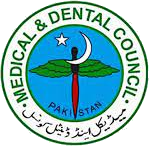Perspectives of ICU Physicians on Antibiotic Use in Critically Ill Patients: A Qualitative Study from a Developing Country
ICU Antibiotic Prescribing Practices
DOI:
https://doi.org/10.51846/jucmd.v4i2.4102Keywords:
Antibiotic Prescribing, Antimicrobial Resistance, Antimicrobial Stewardship, Critically Ill Patients, ICUAbstract
Objective: To explore the experiences and perceptions of ICU consultants regarding antibiotic prescribing practices in critically ill patients within resource-limited healthcare settings.
Methodology: This qualitative study, based on a phenomenological approach, was conducted between January 1 and December 30, 2023, at the National Hospital & Medical Center and DHA Medical Center, Lahore, Pakistan. Six ICU consultants with more than two years of post-fellowship experience were recruited through purposive sampling. Data were collected via face-to-face, semi-structured interviews, audio-recorded with consent. Thematic analysis was performed until data saturation was achieved.
Results: Six major themes emerged. First, early initiation of antibiotics without confirmed diagnosis was reported as a routine and often necessary practice due to diagnostic uncertainty and delays in culture results. Second, barriers to antimicrobial stewardship (AMS) were noted, including the absence of formal AMS policies, poor interdepartmental coordination, and limited access to antibiograms—particularly in government hospitals. Third, factors influencing antibiotic selection included infection site, comorbidities, and family pressure, with variation between open and closed ICU models. Fourth, pharmaceutical incentives were largely deemed irrelevant in ICU prescribing due to the critical nature of decisions. Fifth, inflammatory markers like CRP and procalcitonin were valued for guiding antibiotic de-escalation, though high cost limited routine use. Finally, all participants expressed concern over the rise of antimicrobial resistance (AMR), highlighting the need for better microbiology infrastructure, public education, and regulated antibiotic access.
Conclusion: ICU antibiotic prescribing is shaped by clinical urgency, systemic limitations, and contextual pressures. To mitigate the threat of AMR in low-resource settings, it is crucial to strengthen AMS programs, expand diagnostic capacity, and enforce locally adaptable prescribing protocols.
Published
How to Cite
Issue
Section
License
Copyright (c) 2025 Maheen Khoso, Arshad Taqi, Muhammad Aamir Alsabah, Faisal Imran, Naveed Latif

This work is licensed under a Creative Commons Attribution 4.0 International License.
Authors retain copyright and grant the journal right of first publication with the work simultaneously licensed under a Creative Commons Attribution 4.0 International License that allows others to share the work with an acknowledgment of the work's authorship and initial publication in this journal.
Authors are able to enter into separate, additional contractual arrangements for the non-exclusive distribution of the journal's published version of the work (e.g., post it to an institutional repository, in a journal or publish it in a book), with an acknowledgment of its initial publication in this journal.
Authors are permitted and encouraged to post their work online (e.g., in institutional repositories or on their website) prior to and during the submission process.







